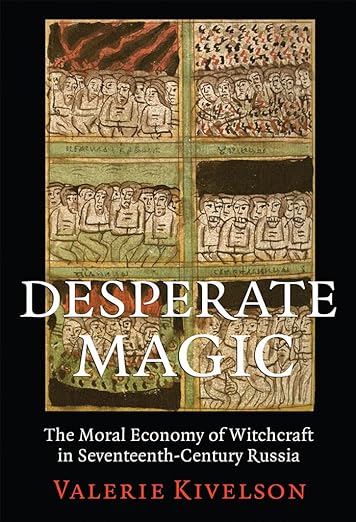prelovedbookssales
Desperate Magic: The Moral Economy of Witchcraft in Seventeenth-Century Russia
Desperate Magic: The Moral Economy of Witchcraft in Seventeenth-Century Russia
Couldn't load pickup availability
"Desperate Magic: The Moral Economy of Witchcraft in Seventeenth-Century Russia" by Valerie Kivelson offers a groundbreaking exploration of witchcraft practices and trials in seventeenth-century Russia—a stark contrast to the witch hunts of Western Europe. In Russia, the majority of those accused were men, a notable deviation from the predominantly female suspects in Catholic and Protestant Europe, where accusations often centered around pacts with the devil. Kivelson’s work delves deep into the socio-legal context of these accusations, revealing how magic was used not as an expression of Satanism but as a means to cope with and sometimes resist the oppressive structures of patriarchy, serfdom, and rigid social hierarchies.
Drawing from extensive trial records, Kivelson illuminates the complex dynamics of accusations, interrogations, and confessions, providing insights into the shared moral visions across different social strata. The use of torture in extracting confessions raises profound questions about the relationship between pain and truth, a theme with enduring relevance. Richly illustrated and broadly comparative, "Desperate Magic" uncovers how magic served as a tool for survival and resistance, employed at points where social exploitation became unbearable, thus offering a nuanced perspective on power, oppression, and resistance in early modern Russia.
Share


